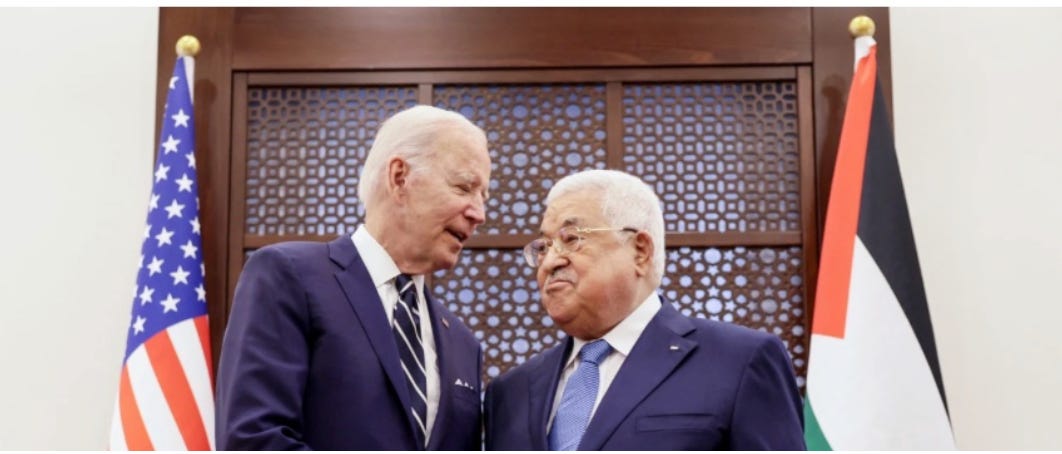With renewed reports that the United States may consider recognizing a Palestinian state as part of a potential normalization agreement with Saudi Arabia, the question of Palestinian statehood has returned to the diplomatic forefront. While such recognition remains unlikely in the near term, the fact that it is even under discussion reveals how detached the conversation has become from legal reality. The question of Palestinian statehood is not just political or moral—it is legal. Under international law, recognition of a state is contingent on specific criteria. As articulated in the 1933 Montevideo Convention on the Rights and Duties of States, a state must meet four basic qualifications: a permanent population, a defined territory, a functioning government, and the capacity to enter into relations with other states. At present, the various Palestinian political entities fail to meet several of these criteria.
1. No Agreed-Upon Borders
Unlike other disputed or partially recognized states, Palestine has no defined, mutually agreed-upon borders. While many claim the pre-1967 lines as a baseline, even Palestinian leadership has rejected these in negotiations. Hamas claims all of Israel as part of Palestine, while the Palestinian Authority has repeatedly walked back recognition of Israel’s right to exist. International law does not require perfect borders—but it does require defined ones. Without a settled territorial framework, there is no way to determine the jurisdiction of a Palestinian state or its obligations.
2. No Single Governing Authority
A core component of statehood is a centralized authority capable of exercising effective control over both territory and population. Today, “Palestine” is divided between two rival regimes: the Palestinian Authority (PA) in Judea and Samaria, and Hamas in Gaza. These factions have fought internal conflicts, have not held elections—let alone a joint national vote—in nearly two decades, and operate under separate, often contradictory legal systems. Hamas, designated a terrorist organization by the U.S., EU, and others, governs Gaza independently and is frequently at odds with the PA. This political and territorial split undermines any claim to unified sovereignty. Without a single, accountable government representing the Palestinian people as a whole, international law provides no basis for legitimate statehood.
3. The Endorsement of Terrorism and Rejection of Nonviolence
The Palestinian Authority’s “pay to slay” program—which provides monthly salaries and benefits to terrorists and their families—does not just glorify violence; it institutionalizes it. These payments are enshrined in Palestinian law and have consumed hundreds of millions of dollars, including foreign aid, to reward acts of terrorism. This isn’t social welfare—it’s incentivized murder. Hamas goes further, openly embracing violence as a core strategy and executing the mass atrocities of October 7, which included the deliberate targeting and torture of civilians. Together, these policies do more than violate international humanitarian norms—they sever any claim to lawful statehood. No polity that uses terrorism as a political tool, codifies it into law, or glorifies it as national identity can meet the threshold of a legitimate sovereign actor under the UN Charter or the binding principles of jus cogens. Statehood requires more than victimhood; it demands adherence to the most basic standards of international law.
Just as Germany was not allowed to rebuild under Nazi ideology, and ISIS was denied any path to statehood despite its de facto control of territory, so too must the world reject the idea that October 7 can become a Palestinian Independence Day. Statehood must be built on peace, legitimacy, and law—not on atrocity.
4. International Precedents and Recognition Criteria
Recognition as a state is not a right—it is a consequence of meeting objective legal thresholds. Entities like Kosovo or South Sudan only achieved widespread recognition after meeting internal governance benchmarks and securing international agreements. In contrast, the Palestinian national project has repeatedly refused to renounce terrorism, dismantle militant factions, or engage in sustained negotiations without preconditions. Recognition without reform would reward intransigence and undermine the integrity of international legal standards.
Keep reading with a 7-day free trial
Subscribe to John Spencer - Urban Warfare to keep reading this post and get 7 days of free access to the full post archives.

